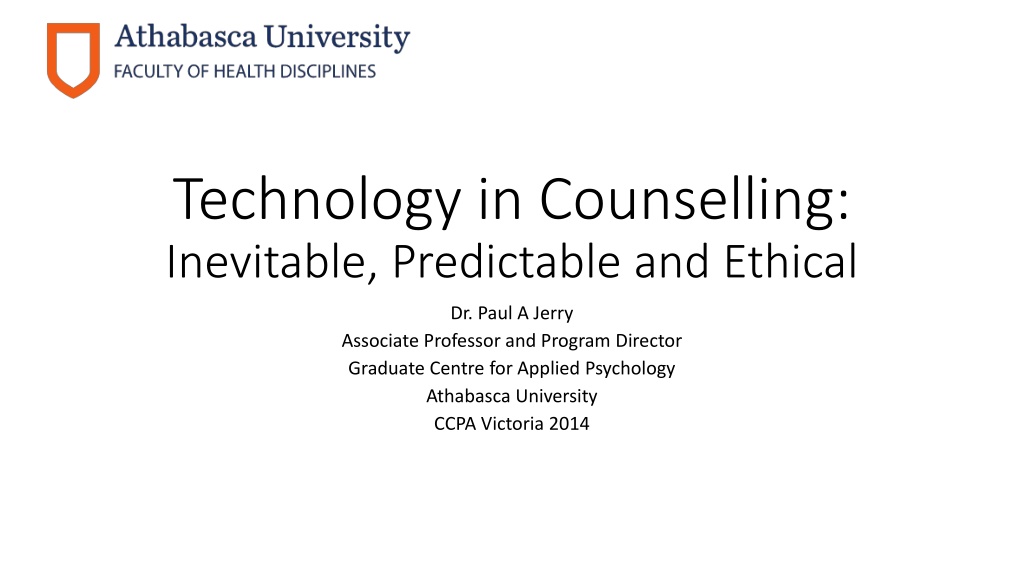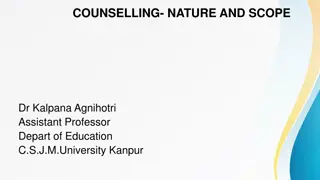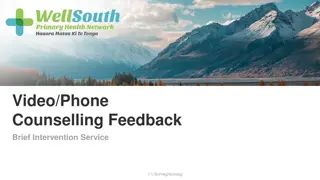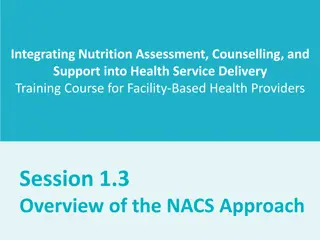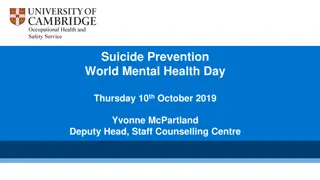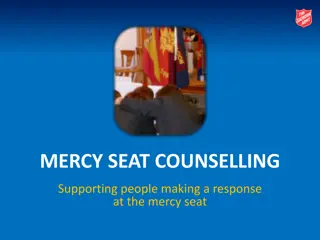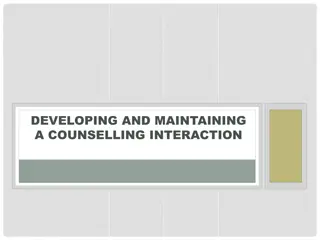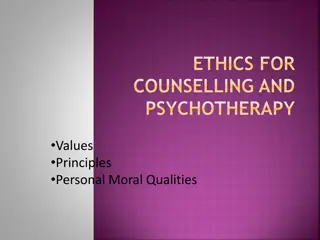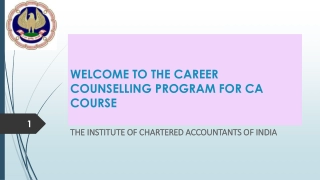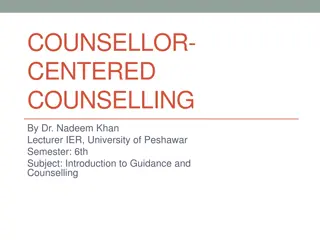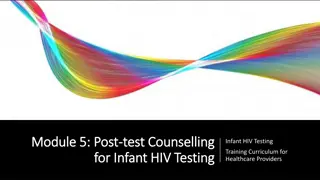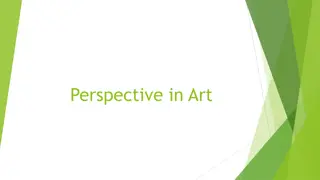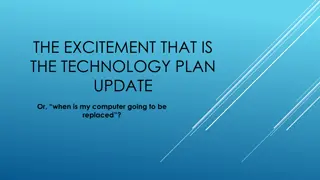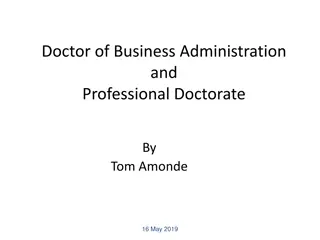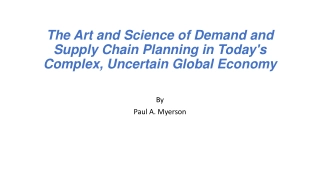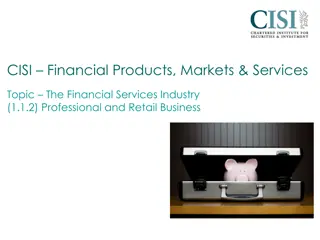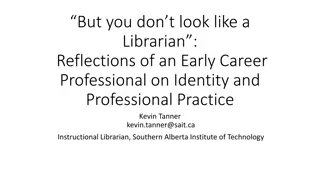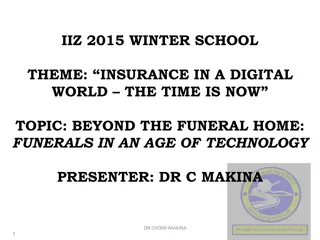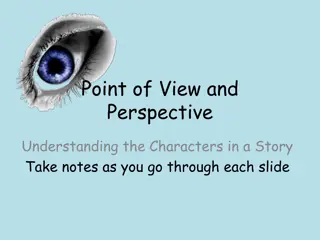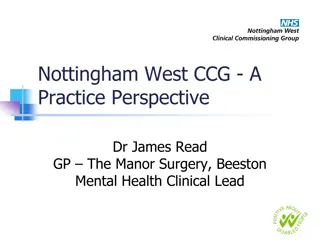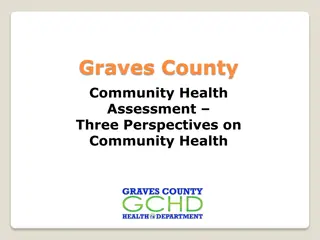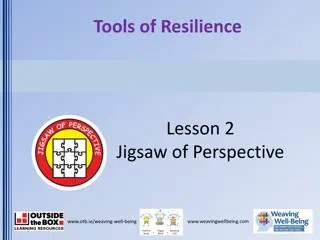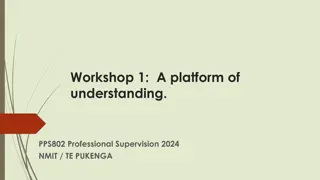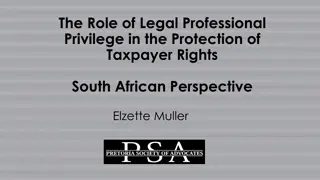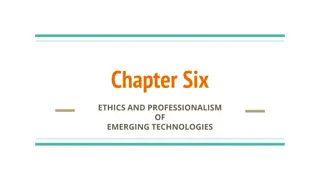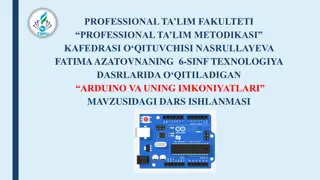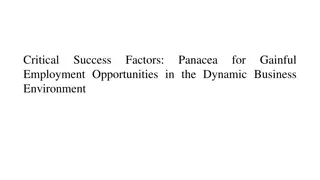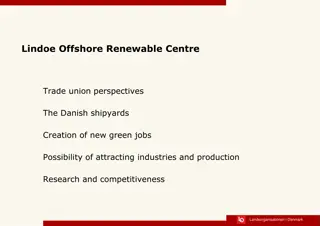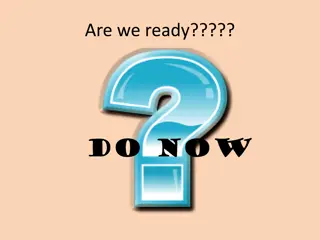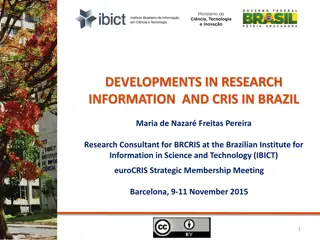Navigating Technology in Counselling: A Professional Perspective
Embracing technology in counseling is not just inevitable but essential for growth. This article by Dr. Paul A. Jerry explores the integration of technology in professional practices, mapping reactions through established theories, and addressing ethical considerations. It emphasizes the need for counselors to view technology as a competency and stay updated to enhance their effectiveness. The discussion also relates Erikson's stages to technology use, highlighting the importance of maintaining competence in employing technological tools for ethical and productive practice.
- Technology in Counselling
- Professional Competency
- Ethical Considerations
- Integrating Technology
- Growth
Download Presentation

Please find below an Image/Link to download the presentation.
The content on the website is provided AS IS for your information and personal use only. It may not be sold, licensed, or shared on other websites without obtaining consent from the author. Download presentation by click this link. If you encounter any issues during the download, it is possible that the publisher has removed the file from their server.
E N D
Presentation Transcript
Technology in Counselling: Inevitable, Predictable and Ethical Dr. Paul A Jerry Associate Professor and Program Director Graduate Centre for Applied Psychology Athabasca University CCPA Victoria 2014
In our very short time together, please remember these three three things from me: 1. The integration of technology into our lives and into our professional practices as counsellors is predictable 2. Our reaction to this integration, and our professional competence with technology can be reliably mapped using theory from our own field, and this also makes our own growth predictable. 3. There are (ethical) landmines on our path that need our attention but if we see tech as a competency, this will go a long way. 2
Technology and Counselling It s not just inevitable, it s already here 3
2009 5
2013 6
Eriksons stages and technology Erikson s stages and technology (Rempel & Jerry, in progress ) Stage Technology Question Examples Keeping paper backup, printing emails to store them Basic Trust vs. Mistrust Can I trust the tech to work? Autonomy vs. Shame and Doubt Can I use the tech without help (most of the time)? Phone crashes, you get it running again without help Is it okay to use this tech as much as I d like to, and is it okay to let it involve more and more of my life/who I am? Initiative vs. Guilt Exploring applications to practice Can I use tech in my life and work in a way that helps me be productive? Using tech to a point that it becomes transparent to me Industry vs. Inferiority Social relationships and online persona(s), Goffman s presentation of self stuff Who am I and what can I be with this tech? Identity vs. Role Confusion 7
Technology as a Professional Competency Competence model: Knowledge, Skills, Judgment, Diligence Can I say that I know the technology that I employ in my practice? Can I say that I can effectively use the technology I employ in my practice? Can I say that I use the technology in my practice in a way that is consistent with good clinical/professional judgment as understood in the Code of Ethics and Standards of Practice? Do I stay up to date with all aspects of my technology? (e.g., software updates, security issues, changes in usage scenarios, etc.) 8
Interim Conclusions Good technology practice is good, ethical counselling practice There will always be some level of risk when using technology We must come to terms with our own comfort with technology View technology in professional practice as an issue of competence 9
And remember. The march of technology is predictable Our adoption of it is also predicable It requires our attention in order that we don t find ourselves in trouble with it 10
Refs and Bib WISC-IV and iPad review: http://neuropsychgeek.blogspot.ca/2013/04/wais-and-wisc-on-ipad- good-and-bad.html Erikson, E. H. (1993). Childhood and society. New York, NY: Norton & Co. (Original work published 1950) Erikson, E. H. (1994). Identity and the life cycle. New York, NY: Norton & Co. (Original work published 1959) Erikson, E. H. (with Erikson, J. M.) (1998). The life cycle completed [Extended version]. New York, NY: Norton & Co. (Original work published 1982) 11
Images references Daytimer: http://lisaalber.files.wordpress.com/2014/02/daytimer.jpg iPhone: http://bladebrownshow.com/wp- content/uploads/2014/02/iphone5_ios7_large_verge_medium_lands cape.jpg Gartner: http://www.gartner.com/technology/home.jsp 12
